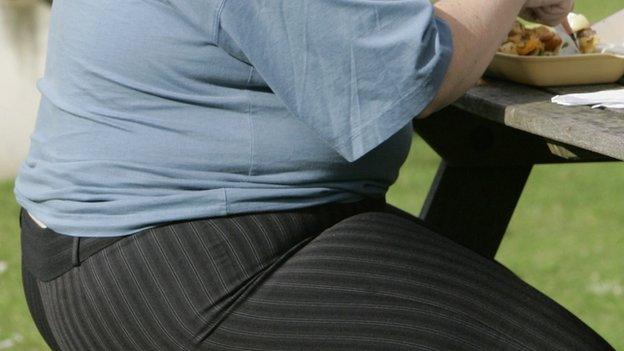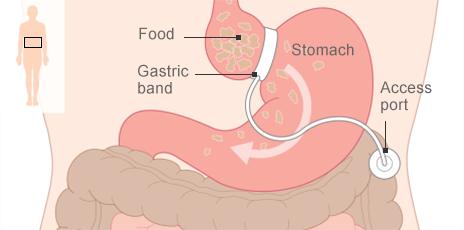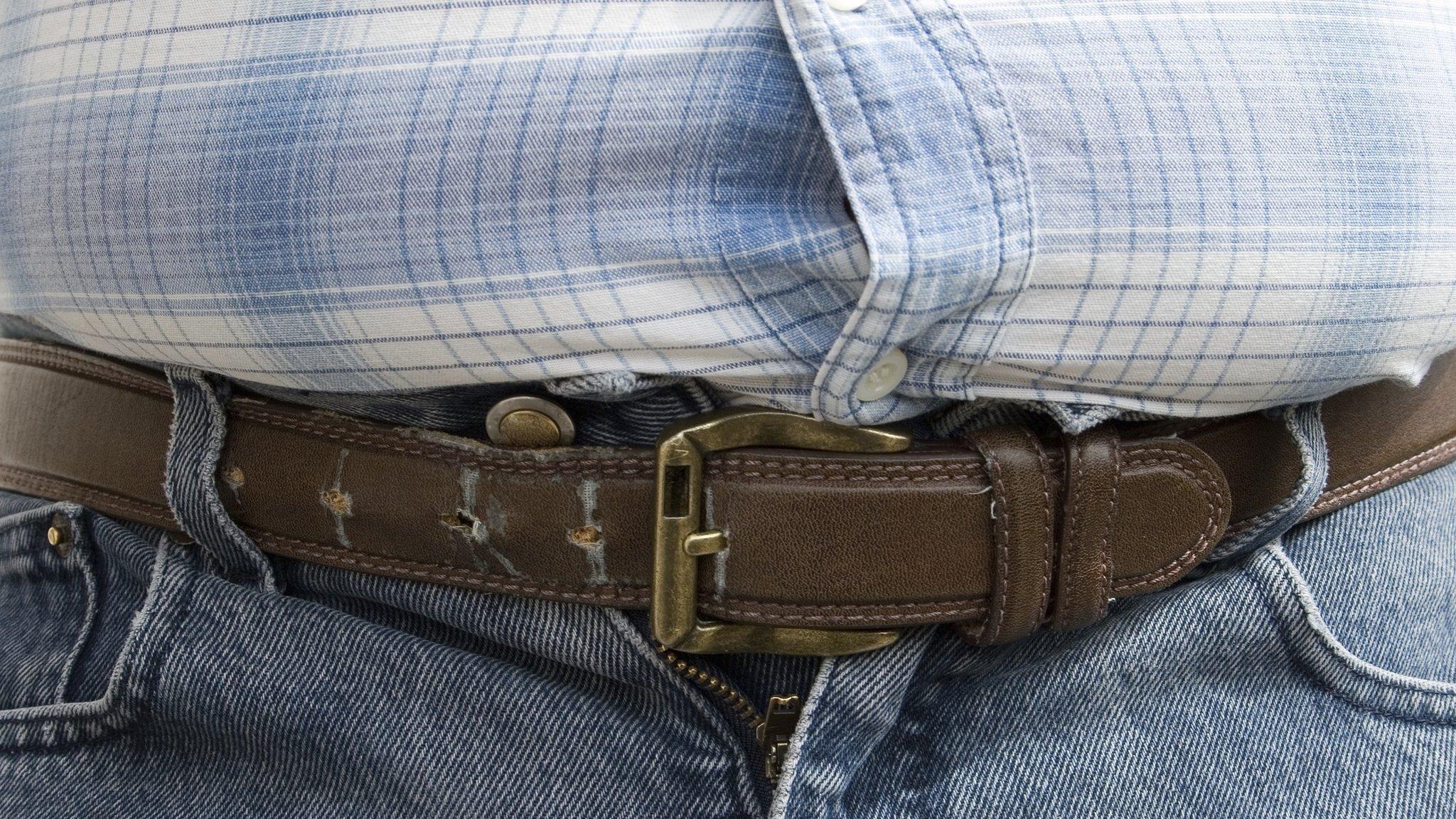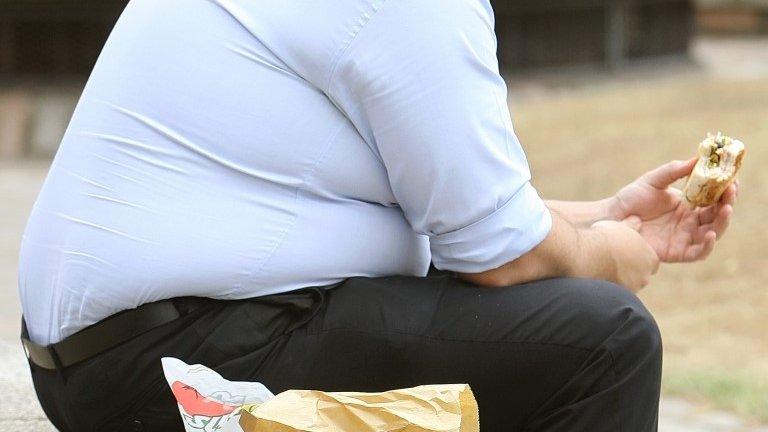NICE: Weight loss ops 'good for obesity-linked diabetes'
- Published
- comments

Obesity is an "immense problem for society", according to the NHS advisory body, NICE.
People diagnosed with diabetes linked to obesity should be quickly assessed for weight loss surgery, according to finalised NHS guidelines.
The National Institute for Health and Care Excellence (NICE), which advises the NHS in England, said obesity was an "immense problem".
Charity Diabetes UK said surgery could be beneficial, but had risks.
About 10% of NHS budgets is spent treating diabetes and its complications.
Weight loss surgery is "good for patients and cost saving for the NHS", the advisory body said.
Obesity had a "huge personal health cost to individuals and an enormous financial cost to the NHS", it said.
'Obesity'
There are two types of diabetes, a condition that causes a person's blood sugar level to be too high.
Type 1 diabetes is an autoimmune condition that generally occurs in childhood. Type 2 diabetes generally starts later in life, and the odds are increased by a lack of exercise and an unhealthy diet.
Prof Mark Baker, the centre for clinical practice director at NICE, said: "Obesity is directly linked to type 2 diabetes, fatty liver disease, cancer, high blood pressure, heart disease, stroke, arthritis and it affects people's mental health.
"It is a major issue, if not the major issue, for the health service in the coming years."
Obese people with recently diagnosed type 2 diabetes should be assessed for weight loss surgery quickly, NICE said.
"Hopefully the impact will be that more patients will be aware that bariatric surgery is a safe, cost-effective treatment for diabetes," Dr Rachel Batterham, of University College London, told the BBC.
Tackling obesity
As a first course of action, NICE recommends diet changes and increased exercise to reduce weight, followed by drugs treatment.
When obesity is potentially life-threatening, weight loss surgery is available on the NHS, as a last resort.
In the UK the most common type of bariatric surgery is a gastric bypass, which usually involves making the stomach smaller and bypassing part of the small intestine. People who have a gastric bypass feel full more quickly.
Other types of weight loss surgery include a gastric band, which makes the stomach smaller, and a gastrectomy, where a part of the stomach is removed.
The cost to the NHS of bariatric surgery was about £6,000, but long-term savings outweighed this initial outlay, Dr Batterham said.
"Yes, there is an initial upfront cost, but this will be recouped within two to three years," she said.

What is bariatric surgery?

Bariatric surgery, also known as weight loss surgery, is used as a last resort to treat people who are dangerously obese and carrying an excessive amount of body fat.
This type of surgery is only available on the NHS to treat people with potentially life-threatening obesity when other treatments have failed.
About 8,000 people a year are currently receiving the treatment.
The two most common types of weight loss surgery are:
Gastric band, where a band is used to reduce the size of the stomach so a smaller amount of food is required to make someone feel full
Gastric bypass, where the digestive system is re-routed past most of the stomach so less food is digested

Barbara Young, the chief executive of Diabetes UK, said: "It is important to stress that all surgery carries risks, and so, as the NICE guidance makes clear, people should only be offered surgery if attempts to lose weight through healthy eating and physical activity have already been tried and not worked."
She added that the NHS should spend more on preventative measures to help stop people getting type 2 diabetes.
Tam Fry, a spokesman for the National Obesity Forum, said that spending on bariatric surgery would be "damage limitation".
"The costs of obesity to individuals and to society in general far outweigh the costs of bariatric surgery," he said.
Diets that involved severely restricting calorie intake or were nutritionally unbalanced should be avoided for long-term weight loss because they were ineffective and could be harmful, NICE said.
However, in the short term, a crash diet could help people who needed to lose weight quickly for medical reasons, it added.
"Very-low-calorie diets... should not be used routinely for people who are obese," said Prof John Wilding, of the University of Liverpool.
"But we are not ruling them out entirely, they may be considered for people who have a clinical need to lose weight quickly, such as before joint-replacement surgery," he added.
- Published11 July 2014

- Published3 November 2014

- Published20 November 2014
- Published31 August 2014

- Published13 January 2014
